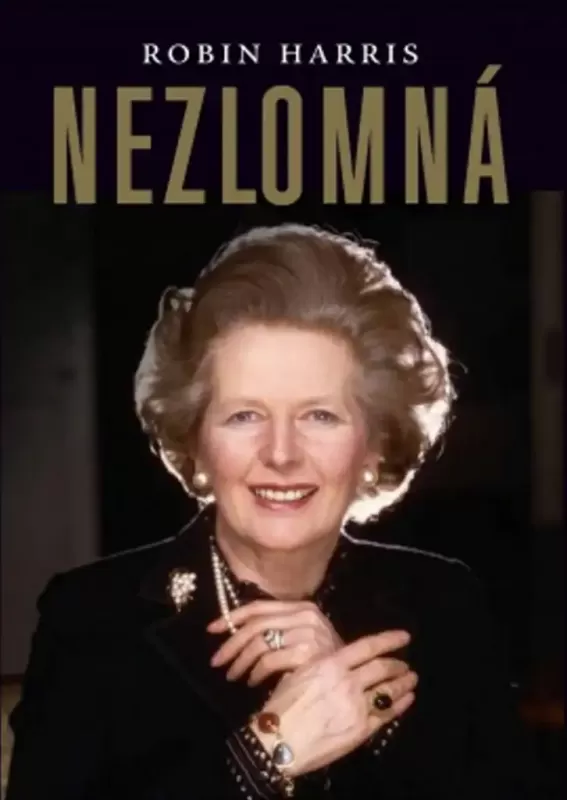Goods in action
Need help choosing,
advice on transport or payment?
Use the chat or contact form.
We will be happy to help you.
We deliver throughout the European Union.

🏪 VÝDEJNÍ MÍSTO
pro Zboží v akci.eu & DPD Pickup
📦 Vyberte si zboží online – vyzvedněte si ho u nás!
🛍 Objednávky z e‑shopu zbozivakci.eu
🚚 Zásilky doručené přes DPD Pickup
🕒 Otevírací doba
Pondělí – Pátek: 7:00 – 18:00
📞 [773 836 472, 724 077 518]
✅ Rychle
✅ Pohodlně
✅ Bez čekání
| List Number: | 01067 |
| EAN: | 9788073353841 |
| Warranty: | |
| Manufacturer: | Leda |
| Price excluding VAT: | 329,00 CZK (14,30 €) |
Natržený přebal, viz druhý obrázek
Životopis Margarety Thatcherové (1925-2013), trojnásobné britské premiérky, je fascinující jako román, vymyslet by se ovšem nedal. Je to příběh dívky z malých poměrů, jež pod dohledem přísného, laskavého otce vyrostla k významné dějinné roli. Británie byla v době politického zrání Thatcherové politicky svobodná, avšak vyčerpaná válkou, ztrátou impéria, dislokací milionů a postupným rozpadem průmyslu. Země ztrácela ekonomickou svobodu, onen základ skromné a těžce zasloužené prosperity její rodiny. I vzdělaní konzervativní politici byli pod vlivem předválečné hospodářské krize a válečné hospodářské politiky přesvědčeni, že stát musí ekonomiku řídit. Z velké krize ovšem mohou povstat velcí politici, kteří voličům dokáží předložit, co demokracie bytostně nesnáší - pot a slzy. V atmosféře nepochopení politických kolegů či rivalů a rozdělené veřejnosti se odehrálo drama, jehož vyústění prokázalo, že prosperita vyplývá z vnitřního vztahu svobody a soukromého majetku. Příběh statečné Margarety je kronikou urputného zápasu proti socialistům, odborům, státní byrokracii, oligarchii monopolů a zestátněných firem i téměř celé akademii teoretizujících ekonomů.
Železná lady, jak ji označili Sověti, ve studené válce zvítězila. V té ekonomické jen dočasně. Ani její největší odpůrce by sice už dnes nenapadlo propagovat státní průmysl, pevný kurs měny, regulaci platů a cen, vysoké progresivní daně… A přece přibývá regulace a byrokracie, daně se plíží nahoru. Stát i bez vlastnictví dokáže spolykat polovinu národního produktu. Opět povstává prastarý problém demokracie, která od státu pod novou ideologií lidských práv požaduje od státu nemožné, dokonce právní kodifikaci materiálního zabezpečení. Růst byrokracie a omezování hospodářské svobody ničí prosperitu a v konečném důsledku ohrožuje i samu demokracii.
Proto je zápas Margarety Thatcherové velkým poučením i varováním.
















